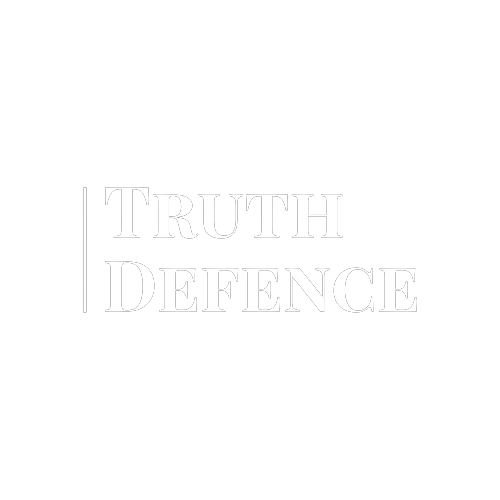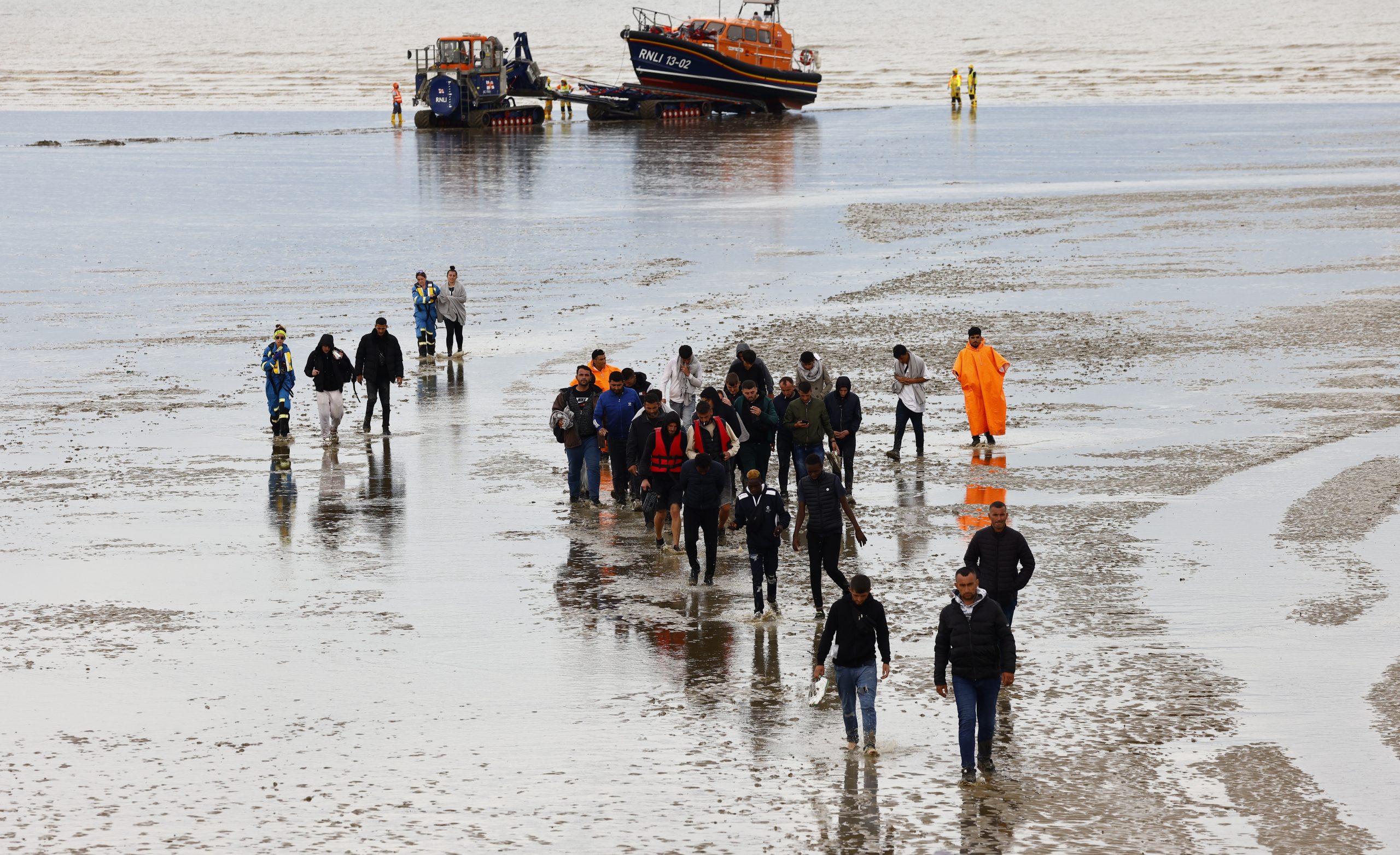The BBC’s continued parroting of government misinformation on the channel crossings, took a sinister turn last week when a BBC Radio 4 presenter claimed that ‘human trafficking is sometimes a choice’. While discussing the 440 unaccompanied minors that went missing from Home Office accommodation since July 2021, BBC’s home editor Mark Easton said: “These young people are often trafficked, sometimes willingly to be honest. They come knowing that they are going to be employed by criminal gangs in the UK.”
Human trafficking is a form of modern slavery and involves fraud, force or coercion; often victims are deceived into believing that they will be provided with decent standard of pay and living. The assertion that a person can ‘willingly traffic’ themselves is not only harmful but a completely misrepresentation of the issue. Easton went on to suppose that because the majority of those missing are 16 and 17 year old Albanian males, this somehow undermined the severity of the issue, adding “13 are below 16 years of age, only one of all of the 440 that have gone missing are female.”
Child victims of trafficking
The ONS latest figures show that four fifths of children who were assessed as likely to be victims of modern slavery in the year ending March 2021, were between the ages of 15 and 17 and 82% of those were boys, who were most likely to be criminally exploited. According to analysis of government data carried out by the Independent the number of Albanian children suspected to be victims of modern slavery in the UK has risen 250% in two years.
Easton’s wording and angle mirrored what Robert Jenrick, the Minister for Immigration, said during a debate in parliament on 24th January. The same line that “only one” of the missing are female was repeated almost verbatim, and the assertion that “some young people will choose to leave these settings” was also reflected in Easton’s portrayal on the subject of missing minors who were under the care of the Home Office at the time of their disappearance.
Key context, including the fact that the Home Office had been grilled by the Home Affairs Committee in early 2022 about the same issue regarding the same hotel, was omitted by the BBC. Call it PR or absolute complacency by the BBC in their willingness to present the government’s line unchallenged and without fact checking; not only misinforming the public about the nature of the crisis but in doing so undermining the realities of human trafficking.
Demonisation of Albanian asylum seekers
The reliance on claims by the Home Office, which was accused of “fixing the figures” on its Afghanistan resettlement scheme, permeates through the UK press in the coverage of channel crossings. The widely shared statistic that 60% of small boat crossings in the summer of 2022 were Albanian nationals was untrue, and relied on provisional, unverified statistics provided by the Home Office.
This claim was first made in September 2022, when Priti Patel said in parliament: “Over the summer the majority of arrivals in small boats from France—about 60%—have been Albanian nationals.” At the time, the Home Office had not released any figures to support this claim, which has now been disproven. Nonetheless, this statistic was published by ITV, The Telegraph, Yahoo News, Sky, The Guardian, The Independent, The Evening Standard, LBC and GB News.
When Ministry of Defence figures revealed that during a six week period between 1 June and 12 July, 40% of those crossing the channel in small boats were Albanian, coverage by The Telegraph and LBC echoed government sentiments that only asylum seekers from war torn countries are legitimate and that human trafficking is not an asylum issue. LBC published an article titled “Can’t be tolerated’: Four in ten migrants ‘came from peaceful Albania instead of war-torn nations’ says report”, which quoted former Conservative leader Iain Duncan Smith, who said “The threat we face is not an asylum issue, it’s an economic migration issue, which is leading these traffickers to abuse the asylum system. This simply cannot be tolerated.”
While Albania is not currently in a state of internal conflict or at war, just because someone is not fleeing a war torn country does not mean that they are not legally entitled to protection under the Refugee Convention; Albania has numerous longstanding issues such as discrimination and violence against LGBTQI+ persons or the ethnic Roma communities, high rates of sexual and domestic violence and trafficking.
Between 2014 and 2021, 17% of all victims of modern trafficking in the UK who were referred to the National Referral Mechanism for the identification and protection of victims of modern slavery (the NRM) were Albanian. In the first two quarters of 2022, this figure rose to 27% – it’s worth mentioning that the NRM does not operate on a self referral basis. For nearly a decade Albanians have been one of the largest groups of people trafficked into the UK.
Undermining victims of modern slavery
Addressing the House of Commons in December, Rishi Sunak announced plans to “significantly raise the threshold someone has to meet to be considered a modern slave” under the Modern Slavery Act. Sunak’s plans would require victims to provide “objective” evidence, which would not only mean that victims of modern slavery without paperwork to prove it could be deported but traffickers and criminal gangs could falsify documentation.
Amnesty International UK said that the plans shows that “he either doesn’t have a clue or frankly does not care”. Mark Davies, from the Refugee Council said it was “dangerous to assume all Albanians are falsifying modern slavery claims” adding that every person claiming asylum should be“given a fair assessment” and the Chief Executive of Every Child Protected Against Trafficking called the plans an “attack on victims’ rights”, which would “undermine the identification and support for victims of child trafficking, significantly and further weakening both our child protection and modern slavery frameworks.”
Given the recent outcry from charities about how government plans to overhaul Modern Slavery legislation would impede on the rights of child victims of modern slavery as well as outcry over missing unaccompanied asylum seeking children, the fact that organisations have spoken out about the BBC’s coverage of this issue is incredibly telling. Dr Grace Robinson, who an expert in gangs, child criminal exploitation and county lines penned a Tweet to the BBC, which stated “your irresponsible reporting upholds the racist and dehumanising narrative that sees Albanian CHILDREN left in innumerable desperate situations – of which you couldn’t even begin to comprehend.”
Why, given its so-called commitment to politically unbiased reporting, has the BBC failed to adequately report on a subject as serious as human trafficking while mirroring the same dangerous rhetoric that has played out in recent months in parliament?

